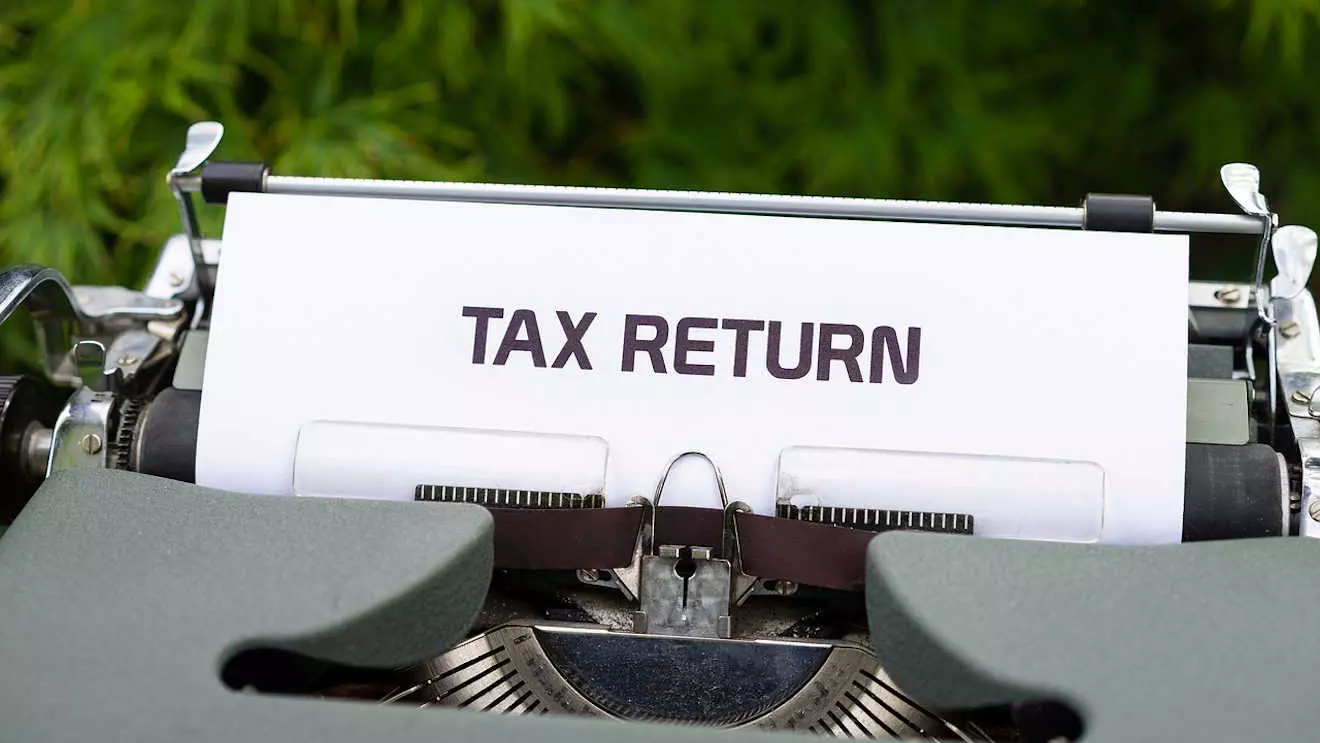
The cost of living in France is certainly not as cheap as it used to be. The French government advises that a single person will need at least €1,800 euros per month to move to France and live comfortably (and €3,600 euros per month for a couple). This is certainly the minimum income that is required to apply for a long stay visa for France and as a guide, it is not far off what you will need to support yourself in France. Certainly, you will need to spend at least a third of this amount on accommodation (possibly slightly less if you are a couple). Utility bills will add another 10% and you will likely spend around €300-400 per month on food and household items. If you are staying in France for more than 3 months, then you will also need to set up health insurance in France. Finally, you will have travel costs and need money for meals out. It is certainly cheaper to live in the rural areas of France, but if you are planning on living in Paris, Lyon or Bordeaux or on the Cote d'Azur; then your living costs will be a lot higher.
The minimum wage in France in 2025 is €1,801 per month gross (around €1400 net per month) - which is similar to the minimum wage in Canada, Australia and the UK, but quite a bit above the Federal minimum wage in the USA. This is the level that the French government determines is required to support a comfortable (but basic) life in France and is based on factors such as the cost of living, economic conditions, and other relevant factors.
Prices in France
Like a lot of European countries, prices increased rapidly in France since the outbreak of the Ukraine war, rising to 7.3% in February 2023. But by January 2025, the rate of inflation had fallen to 1.7%.. Overall, I think that President Macron's government did a good job on keeping a check on Energy prices especially and they have also worked with the main Supermarkets in France to freeze prices for a lot of staple goods. Inflation is forecast to hit an average of 1.1% during 2025.
[SOURCE: Banque de France].
Cost of Living in France compared to USA, Canada, UK, Ireland and Australia

In 2025, France ranked as the 24th most expensive country to live in, out of 197 countries. Some of the most expensive countries to live in include Switzerland, Iceland, Norway, Singapore, Bermuda and Denmark. According to the 2025 Cost of Living Index produced by the website www.numbeo.com, this makes France a cheaper place to live than the United States (13th most expensive), Australia (15th), Canada (22nd), United Kingdom (19th) and Ireland (18th).
However, when you look at the Index scores in detail, what stands out, is that the rental prices in France are significantly lower than other countries. France had a Rent Index score of just 19.1, compared to USA (40.9), Australia (29.8), Canada (30.3), Ireland (39.0) and UK (30.0). Perhaps with the exception of Paris, Lyon, Bordeaux, Provence and Cote d'Azur, I would largely agree with this finding. We have been running our rental websites in France since 2007 and I don't think I have seen a significant increase in rental rates over the last 17 years. INSEE, the French official statistics body, calculated that rents in France only increased by 1.82% during 2024 (a level which is used to formally benchmark rent increase for residential lease renewals across France for the following year).
[SOURCE: INSEE].
When it comes to household groceries, France was recorded as the 17th most expensive country to carry out a weekly shop, behind the USA in 9th place (71.7), Australia in 1th (67.9) and Canada in 15th place (65.3). France was more expensive for a basket of food and household items than New Zealand (62.2), Ireland (56.9), the UK (54.8) and Sweden (55.5). France is also a lot more expensive than a lot of its European neighbours (for example, Spain had an Groceries Index score of 43.0 (51st most expensive country) and Portugal a score of 40.5 (76th). Again, I would largely concur with this conclusion. When we moved to France in 2006 from the UK, we found that the supermarket prices were significantly cheaper. Today, that cannot be said. I would say that food shopping (at the Supermarkets) in France is probably the same if not more expensive than the UK, and clothing is certainly much more expensive than in Spain.
[SOURCE: NUMBEO]
How much do you need to live comfortably in France?

If you are looking for a monthly budget figure for how much money you will need to live comfortably in France, I would firstly say that it depends on where you are going to live in France. The cities of Paris, Bordeaux and Lyon are significantly more expensive than the rest of France. So is Provence and Cote d'Azur, although this is driven more by the summer tourism market.
According to the website www.livingcosts.org the average amount of money you need to live in France as a single person, just to cover your rent, food and transport in 2025, is USD$ 1,542.
Similarly, the Numbeo Cost of Living Index shows that the estimated of monthly cost of living in Montpellier, South France, for a family of four is €3,445 euros per month (excluding rent) and €981 euros per month for a single person (excluding rent). Compared to the United States, the average cost of living is 8.3% lower in France and rents are on average, 48.7% lower than in United States.[SOURCE: NUMBEO]
If you are planning on moving to France and you do not have an EU Passport, then you will need to apply for a Long Term Visa for France (VLS-TS). One the main requirements for the Long Stay Visa, is that you have to show that you have sufficient financial resources to be able to support yourself in France. The minimum income stipulated by the French government for visa applications in 2025, is a gross monthly income of €1,801.80 euros per month ($1,896 USD / £1,489 GBP / AU$ 3,047 / CA$ 2,744), which equates to a net monthly income of around €1,426 euros per month ($1,501 USD / £1,179 GBP / 2,413 AUD / 2,172 CAD), after income tax and social contributions. Please note that this applies to each individual, so a couple would need to show a combined net income of around €2,850 euros per month.
The minimum income requirement for moving to France, represents an annual gross income of €21,612 euros ($22,760 USD / £17,879 GBP / AU$ 36,573 / CA$ 32,928). This income requirement for the visa for France is pegged against the French minimum wage. So this is the level of income which the French government stipulate as being able to provide someone with a basic, but comfortable life in France, covering housing costs, food, transportation and reasonable entertainment.
The term 'income' is quite a broad category. So it covers both employment income and business income (if you are self-employed). It also includes retirment pension income and income from Trust funds. However, savings and investments are not technically classed as income. In situations where an applicant doesn't meet the minimum income requirements, then consideration can be given to personal savings as a substituate or supplement for actual monthly income. No figures are provided by the French Consulate service as to what level of savings can be taken into account, but it is likely to be at least 2-3 times the annual minimum income requirement. It should also be noted that the savings will need to be fairly liquid - so money in a bank account or investment account will qualify, but stocks and shares or property holidings may not be considered.
Housing costs in France
These are the average house rental prices in Southern France for a long term rentals for 2024 and 2025. These house prices apply to our main area of operation in the Southern half of France - so covering the Languedoc, Midi-Pyrenees, Dordogne, Provence and Cote d'Azur. These prices are based on a rental period of 6 months during the off-season period of October to May. If you are looking at a shorter rental period and/or if this coincides with the popular months of May, June and September, then the rental prices could increase by 15-20% per month.

For rentals over the high season months of July and August, most properties in the South of France and Dordogne can earn similar amounts per week from Airbnb type rentals, that they normally receive per month in the off season. So the Owners are unlikely to want to lose that income. However, there are hassle factors and costs involved with the constant changeovers. So it is a process of negotiation. For sure, if you just want to spend 3 months over the summer in the South of France, then it is going to cost you a lot of money, but if you are looking at a longer rental period of up to 12 months then the rates will be more reasonable. In terms of long term rental periods over the summer months or 12 month annual rentals, the rental price will generally be down to negotiation. However, It should be remembered that any property with a private swimming pool will be able to easily book out the whole summer for vacation rentals. So your bargaining position will be quite limited.
A 4 bed villa with private pool in the Languedoc region will be able to charge between €2000 to €2500 per week. In the Cote d'Azur the weekly rental prices will be anywhere between €3000 and €7000 per week. Therefore, if you are looking to get a monthly renal price for a period which includes the high season summer months, the starting point for the negotiations with the Owner will be the €30,000 to €40,000 of summer rental income that they will lose if they rent the house out monthly. Then on top of that, you need to add the monthly rental price.
The rental prices do not include utility bills (for which, especially with the recent energy problems in Europe, you should budget for around 17%-20% of the rental price).
You will pay an additional premium of around 15%-25% for rental properties in popular cities such as Toulouse, Montpellier, Avignon, Cannes and Nice, as well as is the popular locations in Provence, Dordogne and Cote d'Azur. In some locations, such as Aix-en-Provence, St Tropez, St Maxime, St Raphael, Theoule-sur-Mer, Mougins, Antibes, Valbonne and Menton; the rent prices can in some cases be double or even triple the rental rates for properties located in the Languedoc region.
Examples of housing costs in France - Provence
So Provence is not a cheap place to rent houses or apartment on a long term basis. From April through to October, Provence is extremely popular with tourists and it is part of the World's most visited tourist region (in conjunction with the neighbouring Cote d'Azur region). To give you idea of what you can get for your money in terms of long term rentals in Provence, these two houses illustrate the local rental market very well.
Provence Stone Farmhouse to rent in France long term (Ref: 2066)

This 3 bed stone farmhouse in Provence is the perfect example of how the local tourism market skews the rental rates in Provence. In the summer, the farmhouse has access to a swimming pool and usually rents for between €2,000 to €2,800 euros per week during June to September. The farmhouse is very popular because it is set on a small hillside within over 30 hectares of natural Parkland, accessed by its own country track. It is also close to the town of Forcalquier, a popular provençal market town and is 30 mins to Aix-en-Provence.
During the off-season from October to May, the farmhouse can be rented from €1750 euros per month. However, if you are looking to rent the farmhouse for a full 12 months (which the Owner is open to), the monthly rental price will increase to €2750 euros per month. Why? Because the Owner normally earns around €25,000 euros each summer. He does not want to give up that income. If he rents the house to you for 12 months, he needs to recoup that summer income as a minimum. Then on top of that, he needs to charge you a monthly rent for use of the house. That is simply how it works in Provence.
House for long term rentals in Aix en Provence France (Ref: 1699)

Another example of rental properties in Provence, France; is this 3 bed house on the edge of Aix-en-Provence. So Aix is a very popular place to live in South France. It is a University town, so full of life all year around and Aix holds a number of festivals throughout the year. Aix, also has its own TGV train station, just outside the city and it is close to Marseille airport (30 mins). There is also an International school in Aix, which is very popular.
Aix gets a lot of tourist visitors throughout the year. We have always tried to get more apartments and houses for long term rental in Aix-en-Provence over the years, but it has always proved very difficult. Landlords can earn far more money from Airbnb rentals throughout the year or they can rent apartments to students for 9 months of the year and then rent the same apartment on Airbnb over the summer period when the University closes.
But this well-equipped 3 bedroom house in Aix is available for annual rentals. The monthly rental price is €3,000 per month plus a provision of €400 per month for the utility bills on top. So it is certainly not cheap. A similar property in the Languedoc region would be half the price. But it is not out-of-step with the local rental prices in Aix, especially when you add on the fact that it is situated in a quiet, leafy neighbourhood of Aix, surrounded by woodland, but just 10 mins from the town centre. The house comes with high speed Wi-Fi, central heating, 2 bathrooms, terrace with outdoor dining area and a private garden.
This house in Aix-en-Provence is currently available for long term rentals from mid-August 2024 for rentals up to 1 year from €3,000 per month + bills.
Utility bill prices in France

We are often asked by our customers to estimate the monthly utility bills for their prospective long term rental in France. It is often like asking how long is a piece of string, because most utility bills are based on consumption. If the customer has the air conditioning running 24/7 or the heating turned up to 26°C, then they will be paying out a lot in electricity. In addition to this, with the sharp increase in fuel and electricity prices caused by the war in Ukraine, it makes any estimate very difficult indeed. That said, since the beginning of 2025, electricity prices in France have fallen by around -7.83% (although fuel still remains high at around €1.78 per litre of petrol [SOURCE: Cargopedia]).
As a rough rule of thumb we always advise clients to budget for at least 17-20% of the monthly rental price to go towards the utility bills.
Although the average costs of electricity in France is around the median price level for European countries (at €0.2317 per kw [SOURCE: EUROSTAT]) and is certainly a lot cheaper than the USA, you do still need to be very careful when using wall mounted electric radiators or fan heaters and also be careful in your use of hot water (which can amount to 35% of your electricity usage, especially if you have lots of baths). This is certainly something that I love about the French. They are extremely frugal when it comes to electricity usage. It is almost like the national religion in France. If you venture into your local bar or boulangerie, your neighbours will come up to you and tell you that you have left a light on in a room. And if you have left the AC running and there is a door or window open, well then it is the Guillotine chop for you.
According to www.internationalliving.com the average electricity bill in France for a 2 bed apartment is €870 to €950 per year ($955-1,043 USD / £745-810 GBP / AU$ 1,445-1,575 / CA$ 1,281-1,400) or around €80 per month ($87 USD).
Wi-Fi internet is normally a fixed price (starting from €20 per month). If internet TV is also added to the package, you can be paying around €30-40 per month ($32-43 USD / £25-35 GBP / AU$ 50-66 / CA$ 44-58).
Water bills in France are normally provided based on a fixed annual contract. So again the monthly amounts should not vary. But most landlords will take a reading of the water consumption during your stay and if it is above the guidelines of the fixed annual contract, then you will be expected to reimburse the Owner for the higher charges that will be applied to their billing contract in the following year. As an average, you will expect to pay around €35-45 per month for water for a couple (£38-48 USD / £30-38 GBP / AU$ 58-74 / CA$ 51-66)
Healthcare costs in France

One of the main benefits of moving to France is that you can get access to the wonderful healthcare system in France. The French health care system is widely regarded as the best in the World. France spends 11.5% of its GBP on healthcare, it has one of the highest Doctor-to-Population ratios in the world and a high life expectancy rate of 79.5 years for males, 85.4 years for females. In France there is a universal health insurance scheme reimbursing 70% of medical costs for its citizens and long term residents. Hospital treatment is usually free and appointments with Consultants, Specialists, Doctors, Dentists, Opticians, Physiotherapists, etc; are controlled by a national price list. A trip to the Doctor is incredibly cheap at about €30 euros and if you need an operation, you will not go bankrupt.
You also have the choice to go private, especially if you want to be treated by a particular Specialist, but I don't know anyone that does that. In addition to the basic health scheme, you can purchase a Mutual Insurance to cover out-of-pocket expenses not covered by the State.
Healthcare costs in France: moving from the UK
If you are moving to France from the United Kingdom and you are in receipt of a state pension, then you can apply for an S1 or S2 certificate (from the HM Revenue and Customs office in Newcastle). You can also apply for an S1 certificate if you do not yet qualify for a pension, but it can cause you issues if you have to return to the UK prior to retirement.
The S1 certificate will provide reciprocal health care coverage in France, based on the standard reimbursement rates set by the French State. So you will have very few healthcare costs in France and the treatment you receive will be much quicker than the NHS.
Healthcare costs in France: moving from USA, Canada, Australia
If you are moving to France from other countries (outside of the European Union), then you are able to buy yourself into the French state healthcare system. There is a special scheme (called PUMa) which allows foreign nationals to access the standard healthcare system in France. Under the PUMa scheme, anybody who is living in France for more than 3 months and who doesn’t qualify for health cover in any other way, may apply to join PUMa under the classification 'sans activité professionnelle' or non-active people. If you have a relatively modest income (of around €23,000 euros per year or €46,000 euros per year for a couple), then you will not have to pay anything for accessing the healthcare system. Zero, zilch, rien, nada.
If your income is above this level, then you will be charged a levy of 6.5% of your income (up to a ceiling level). BUT, there are a number of categories of people who are exempt from this levy. These include people in receipt of a retirement pension (from their home country) and people who are working and paying taxes (in home country and/or France). The only people who would pay the levy would in theory be people who don't work, are not yet retired and who have a healthy passive income from savings or investments. So basically, if you fall in the right category, you will be able to get excellent healthcare in France for next-to-nothing.
We recently helped a retired American couple find a long term rental property in France and they said that they couldn't believe how cheap the health care costs are in France compared to the United States and they feel that the care is on an equivalent level, if not better.
Taxes in France

When looking at the cost of living in France, you also have to consider everything 'in the round'. Contrary to popular belief, income tax in France is not that high compared to other countries. Workers in France pay zero tax on earnings up to €10,777 euros, then 11% on earnings from €10,778 to €27,478, 30% from €27,479 to €78,570 and 41% on earnings above €78,571. Certainly, this is a lot less than low to middle income earners in the UK and United States.
But in France, the real kicker is the social security contributions. The social security contributions in France are high (at around 20-30% of salary). This is certainly much higher than the US, Canada and the UK, but it should be remembered that the French social security contributions cover the following items:
- healthcare - which on average in the US costs each worker around $10,000 each year and the French healthcare system is regarded as the #1 healthcare system in the World (and is certainly significantly better than the UK)
- retirement - which provides for a basic state pension at age 63 to 65, of around €1,509 gross pension per month (for full contributions)
- unemployment benefit - which I think is probably one of the most generous schemes in the World (some would say too generous)
- education - school fees are free up to age 18 and there are a combination of public (virtually free) and private universities in France
The benefit of Foreigners moving to France is that (depending on the taxation treaty between France and your home country), you probably won't be liable for paying any social contributions on income or pensions earned abroad. So from a tax perspective, living in France if you are a foreigner, is not that expensive.
How much does it cost to move to France?
First of all, even if you are planning on moving to France permanently, do not transport all of your Worldly goods to France. It is expensive, it is a hassle, your furniture might not fit the apartment or house in France, electrical goods will need adaptor plugs (and USA appliances will not work in France - the country runs on 240V not 120V) and guess what, they do have furniture and clothes shops in France! The other thing is, you do not know that you will actually settle in France.
We arranged a long term let for a Canadian family back in 2018. They spent CA$ 20,000, transporting 2 dogs, all their furniture, clothes, toys, you name it, to France. They stayed 3 months and then returned to Canada. They then had to incur the same costs, transporting everything back home.
As a rough rule of thumb, you will probably have to pay around $10,000 USD to ship a standard container (20 foot / 6m x 2.4m) from the United States and Canada to France. In addition to the standard Ocean freight costs (probably around 30% of the overall costs), you will also need to add in the transport costs to the port in your home country and from the port in France (normally Le Harve) to your accommodation, as well as the preparation of customs documentation. If you are able to show that you are transferring your primary residence to France (i.e., it is a permanent move), then you will be exempt from paying the 20% French TVA (sales tax) and customs duties (which vary from 0% to 22% depending on the items) on your household items.
Thinking of moving to France ?
If you are planning on moving to France, then the following articles provide more information on aplying for a long stay visa for France, retiring in France, opening a bank account, setting up health care in France and the best regions in France to live.
There are 4 main criteria that you must meet on your French Residency application, but the most important on is that you have sufficient financial resources to support yourself in France.
|
France regularly features in the Top 10 list of the best countries to move to. Here we analyse where are the 10 best regions to live, work and retire in France. |
If you are planning on moving to France and to live here for more than 3 months at a time, then it is a legal requirement for you to have health insurance in place.
| How to open a bank account in France One of the first jobs that you need to do when you are moving to France is to open a French bank account. Everything in France is linked to having a French bank account.
|
Discover the best options for finding properties to rent in France long term and what information you will need to provide to sign a long term lease.
|
Discover how much it will cost to rent a house or apartment in France long term. These are the average house rental prices in France for a long term rentals for 2025.
|
 If you need assistance with planning your move to France and getting set up when you arrive, we are happy to recommend the services of FAB EXPAT SERVICES, a French Relocation & Insurance agency run by Fabien Pelissier. Fabien's team and network of external consultants, can help you with everything from applying for long stay visas for France, setting up a business in France, opening bank accounts, arranging health insurance in France, organising car & home insurance and completing your French tax return.
If you need assistance with planning your move to France and getting set up when you arrive, we are happy to recommend the services of FAB EXPAT SERVICES, a French Relocation & Insurance agency run by Fabien Pelissier. Fabien's team and network of external consultants, can help you with everything from applying for long stay visas for France, setting up a business in France, opening bank accounts, arranging health insurance in France, organising car & home insurance and completing your French tax return.
Fab Expat Services can be contacted by email at: Fab Insurance by phone (English speaking line): (+33) 05 35 65 50 50 and through Facebook: Fab Expat Services
You can also book a personal 30 minute telephone consultation with Fabien Pelissier to answer all your questions in relation to your visa application and relocation to France. Visit Visa & Relocation Consultation to reserve a date and time for your consultation.


















